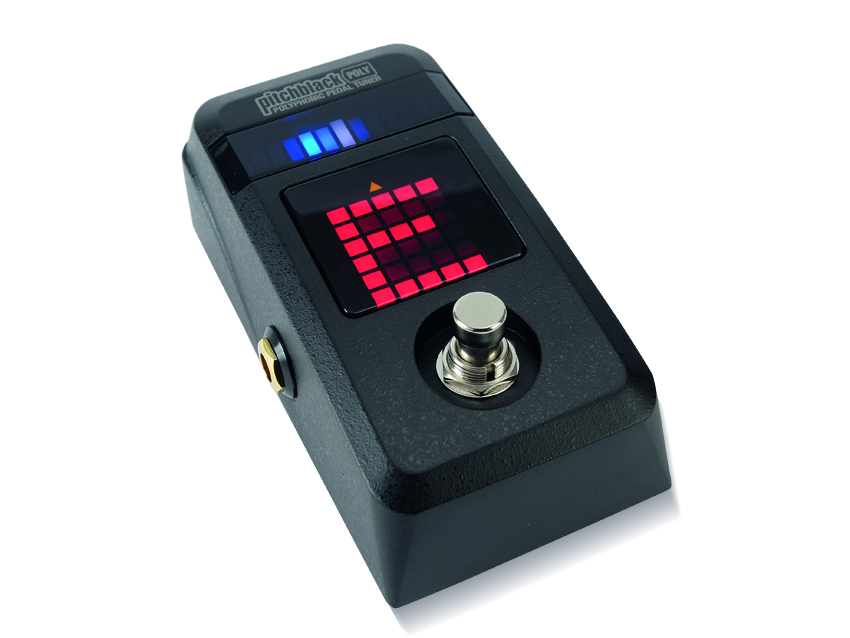MusicRadar Verdict
Overall, the Pitchblack Poly is a fine unit that does nothing to dilute Korg's reputation as a maker of quality tuners.
Pros
- +
Ease of use; accurate tuning; straightforward interface; compact size.
Cons
- -
Nothing.
MusicRadar's got your back
After the success of the TC Electronic PolyTune, it's no surprise to see Korg follow the polyphonic trend with this Pitchblack Poly.
In similar fashion to the TC tuner, with a simple strum of the open strings, the Pitchblack Poly will automatically work out whether you're playing a guitar or bass, including four-, five- and six-strings, and then tell you how in tune you are via a clear display.
From there, you can tune each string individually, and the display changes to show the relevant note you're aiming for, plus a meter that can be set to regular, strobe, half-strobe or split. Furthermore, you can calibrate the tuner to operate with various capo and altered tunings, and we're happy to report that the interface, although involved, is straightforward to use.
In Use
Assuming that accurate tuning is a given with a modern tuner, we'd argue that the main feature for any such item should be that it mutes the signal when in use.
Your audience has no interest in hearing you tune up and fortunately the Pitchblack Poly clears this hurdle effortlessly. What's more, it also includes a true-bypass circuit.
Although not quite as bijou and compact as the new PolyTune Mini, the Pitchblack won't take up too much space on your pedalboard and, unlike the Mini, it can be run by a single 9V battery.
Want all the hottest music and gear news, reviews, deals, features and more, direct to your inbox? Sign up here.
Simon Bradley is a guitar and especially rock guitar expert who worked for Guitarist magazine and has in the past contributed to world-leading music and guitar titles like MusicRadar (obviously), Guitarist, Guitar World and Louder. What he doesn't know about Brian May's playing and, especially, the Red Special, isn't worth knowing.
